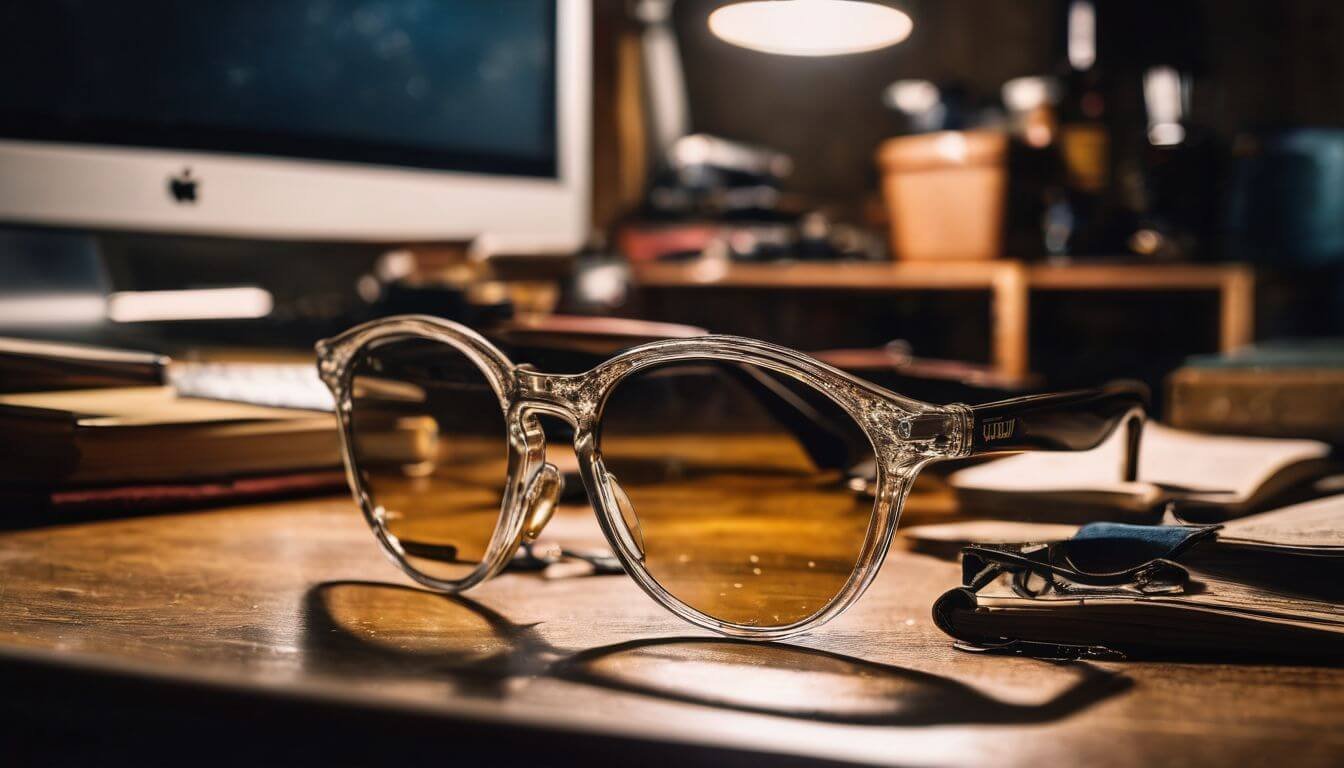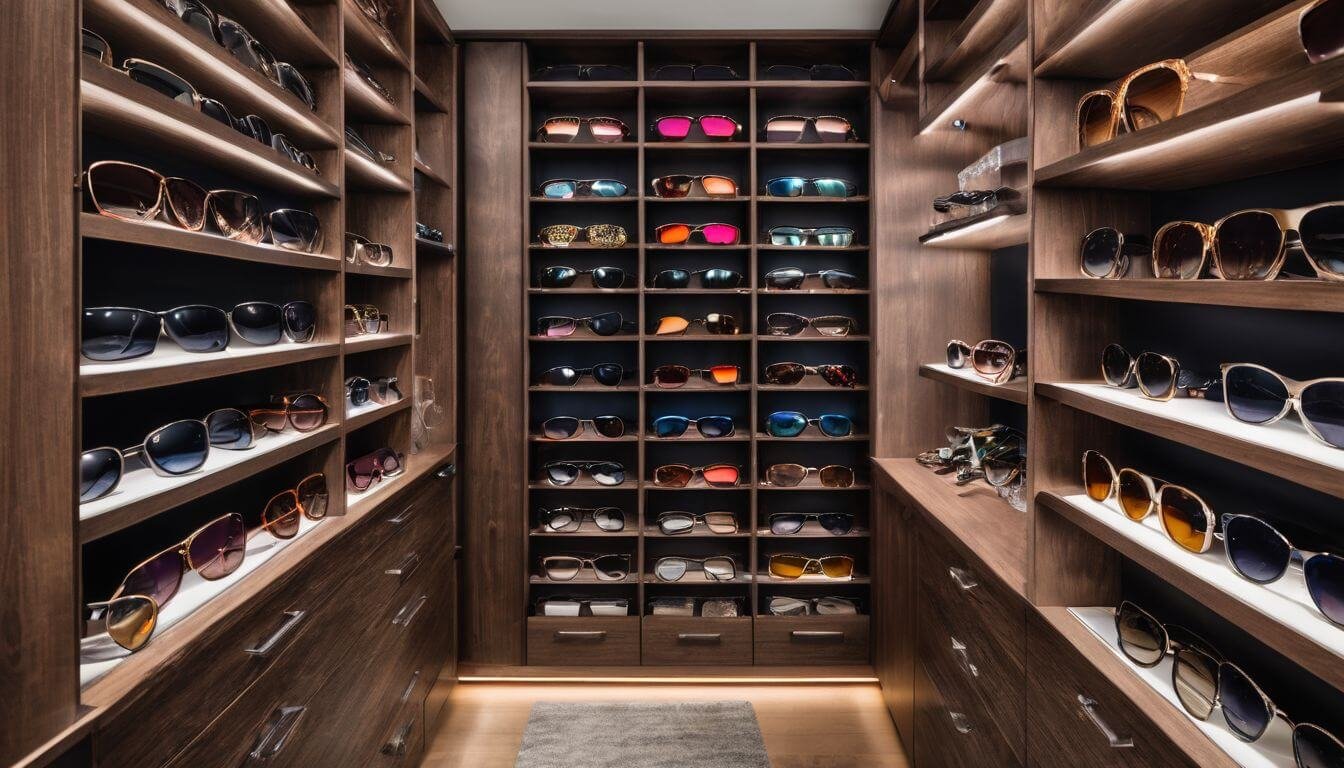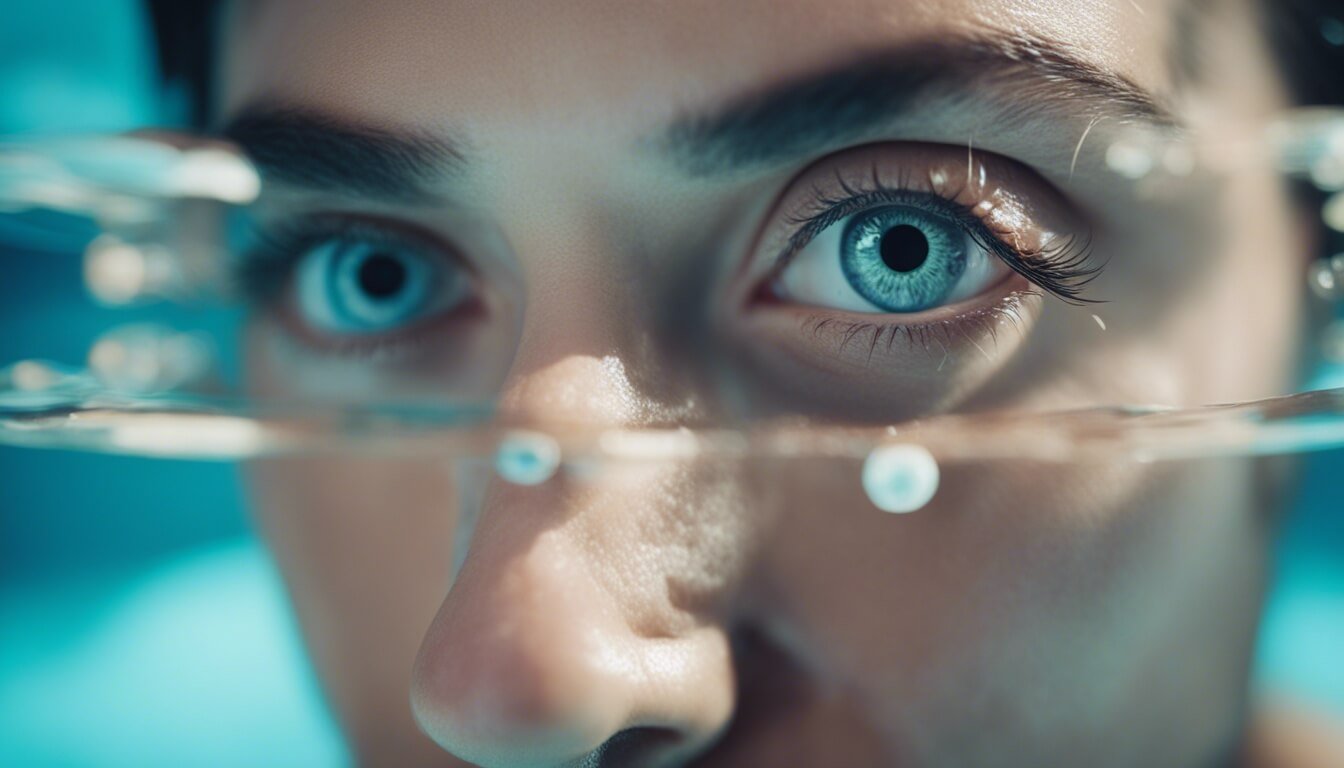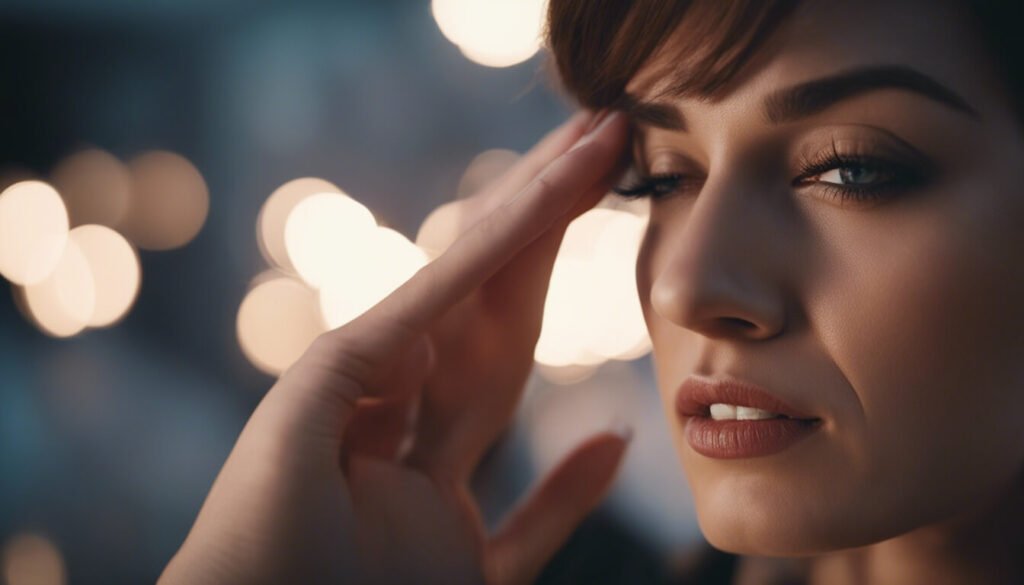
Effective Self-Care Tips for Managing Dry Eye Syndrome
Understanding Dry Eye Syndrome
Dry eye syndrome is when your eyes don’t make enough tears or the right kind of tears to stay wet. This can happen if the tiny glands in your eyelids get blocked or if there’s something wrong with the surface of your eye.
When you have dry eyes, they might burn, itch, or feel like there’s grit in them.
Some things that lead to dry eye are staring at screens for too long without blinking, being in very windy places, and even some medications for allergies and colds. It sounds funny, but sometimes when these glands get clogged up, a warm washcloth can do wonders! Just place it over your closed eyes—think of it as a mini spa day for your peepers.
If things don’t get better or if it feels really bad, an eye doctor can take a look and help out more.
Explanation of dry eye syndrome and its causes
Dry eye syndrome happens when your eyes don’t make enough tears, or the tears evaporate too fast. This can make your eyes feel scratchy or sting, and sometimes they get red. Lots of things can cause it, like staring at a screen too long without blinking.
Wind and smoke might irritate your eyes more. If you’re around a lot of air conditioning or in a dry place, that could be tough on your eyes too.
Your body might not create enough good-quality tears if something is up with your eyelid glands. Think about those tiny oil glands getting clogged—no wonder it feels yucky! Even taking some medicines for allergies or colds might mess with how moist your eyes stay.
Remember, these are just a few reasons why someone might have trouble keeping their eyes nice and wet.
Symptoms and signs of dry eye syndrome
Dry eye syndrome can make your eyes feel uncomfortable. It happens when your eyes don’t stay wet enough. Here are some signs to watch for:
- Your eyes might sting or burn, like you have soap in them.
- Feeling like there’s sand in your eyes.
- Redness makes your eyes look sore.
- It’s hard to keep your eyes open, especially in the wind or around smoke.
- Blurry vision, which often gets worse as the day goes on.
- Light bothers your eyes more than it should.
- Making tears when you try to focus on something for a while.

Home Remedies for Dry Eye Relief
Warm compresses work wonders. Just soak a clean cloth in warm water, wring it out, and place it over your closed eyes for a few minutes. This can help open up the oil glands (yep, your eyes have them too!), making your tears more effective at keeping everything nice and moist.
And hey, while you’re at it, give those eyelids a gentle scrub with some baby shampoo—it gets rid of the gunk that might be causing trouble.
Now let’s talk humidity. Winter air? Not a friend to dry eyes. But using a humidifier adds moisture back into the room which helps big time. Also, dodge smoky places and try not to let wind or air conditioning blast directly on your face—those are real no-nos if you want comfy peepers! Plus, blinking is basically like hitting the refresh button for your eyes; do it often when staring at screens for relief from dry eye symptoms.
Warm Compresses for Eyelid Health
Dry eyes can feel scratchy and uncomfortable. Warm compresses help make your eyelids healthier and soothe your eyes.
- Grab a clean washcloth and soak it in warm water. Make sure it’s not too hot, just pleasantly warm.
- Gently wring the cloth out so it’s not dripping wet.
- Sit back or lean back slightly, and place the warm cloth over your closed eyelids.
- Chill out with the cloth on for about 5 or 10 minutes. This is a good moment to relax!
- Do this twice a day to clear up those blocked oil glands. It’s like a spa treatment for your eyes.
- If your eyes still feel dry after, try using some lubricating eye drops.
Eyelid Cleaning Techniques
Taking care of your eyelids is key in managing dry eye syndrome. Gentle cleaning can prevent irritation and keep your eyes feeling comfortable.
- Splash warm water on your face to moisten the eye area. It makes cleaning easier.
- Pour a small amount of baby shampoo onto a clean washcloth. This shampoo is gentle and won’t hurt your eyes.
- Close one eye, and lightly rub the washcloth near the base of your lashes. Keep the touch soft to avoid harm.
- Open your eye and rinse with warm water to get rid of any shampoo left.
- Repeat these steps with your other eye, using a different part of the cloth to stay clean.
- Use this technique once or twice daily, especially if you have severe dry eye symptoms.

Lifestyle Adjustments for Dry Eye Management
Okay, let’s get your eyes some happy time! Blinking exercises are a neat trick. Try the 20-20-20 rule: every 20 minutes, look at something 20 feet away for 20 seconds. This helps big time when you’re glued to screens all day.
Speaking of screens, keep them at eye level so you won’t have to open your eyes too wide.
Now, chomp on fish like salmon or chia seeds—they’re stuffed with omega-3 fatty acids and super good for dry eyes. Oh, and drink lots of water; it keeps your whole body and your peepers well-lubricated.
Trust me; your thirsty eyes will thank you!
Don’t forget to use a humidifier in your house because dry air is no friend to dry eyes. And here’s another cool tip—literally—keep away from smoke and blasts of air from heaters or ACs that can make things worse.
Remember (oops! I mean), make sure these little changes become a part of what you do every day—it’s not just about finding relief but also helping prevent dry eye from cramping your style in the first place!
Blinking Exercises and Screen Positioning
Eyes need breaks just like the rest of our bodies. Blinking exercises can help keep your eyes moist and happy.
- Close your eyes slowly and then open them. Do this 10 times to spread tears evenly across your eye’s surface.
- Try the 20-20-20 rule: every 20 minutes, look at something 20 feet away for 20 seconds. It gives your eyes a chance to rest.
- Make blinking a habit. Aim for a full blink every few seconds, especially while using screens.
- Position your screen so it’s about an arm’s length away from your face and slightly below eye level. This helps reduce dryness.
- Adjust screen brightness so it matches the light in your room. Bright screens can cause more eye strain.
- Use a matte screen filter if glare is causing dry eyes or irritation. It cuts down on shiny reflections.
- Rest your eyes often by closing them for a few minutes, giving them time to regain moisture.
Diet and Hydration for Eye Health
Eating right can make a big difference for dry eyes. Dig into foods like salmon and walnuts that are full of good oils. These help your tears stay strong, working to keep your eyes moist.
Oh, and don’t forget to drink lots of water! Staying well-hydrated means your body has enough fluids to produce tears.
Now, sip on this – carrying a water bottle might just be your eyes’ new best friend. Your eye care game gets even better when you throw in some flaxseed oils or chia seeds into the mix.
A few sprinkles here and there could help those peepers stay happy and tearful—in a good way!

Protective Measures Against Dry Eye
Wearing sunglasses can really protect your eyes from drying out. Choose ones that block wind and sun from hitting your face. This helps keep the moisture on the surface of the eye.
At home, a humidifier adds water to dry air. That means fewer dry eye problems for you.
Stay away from smoke whenever you can – it’s not good for your eyes! Air blowing straight at you? Move! Fans and air conditioners make things worse too, so try not to sit right in front of them.
And hey, those warm compresses feel great on tired eyelids and help with oily glands which may help relieve dry symptoms. Keep blinking too—it’s like giving your eyes a mini break!
Choosing the Right Eyewear
Glasses aren’t just for seeing better. The right pair can help keep your eyes from feeling dry.
- Look for glasses or sunglasses that wrap around. They shield your peepers from harsh wind and sun which can dry them out.
- Go for bigger lenses or a close-fitting style. These reduce the airflow around your eyes, keeping the moisture in.
- Check if the lenses have UV protection. It guards against rays from the sun that can hurt and dry out your eyes.
Managing Indoor Air Quality
Dry eye can be a real pain, but the air in your home plays a big role in how your eyes feel. Keeping the air moist and clean helps a lot.
- Use a humidifier to add moisture to the air. This stops the water in your eyes from drying up too fast.
- Keep windows closed on windy days to stop dust and dirt from getting in.
- Stay away from smoke. It’s bad for your eyes. This means no smoking inside and staying clear of others who do.
- Air filters are great! They catch stuff that could bother your eyes, like pet hair and dust.
- Taking care of house plants might help too. They’re like nature’s air purifiers!
- Let fresh air come in when you can. It sweeps out the old, stale air.
- Clean often to keep dust away. Dust can cause dry eyes to get worse.
- Fans should blow away from where people sit. You don’t want air blowing right in your face all day.
- Make sure vents aren’t blocked by furniture or rugs. Blocked vents can mess with airflow and raise dust.
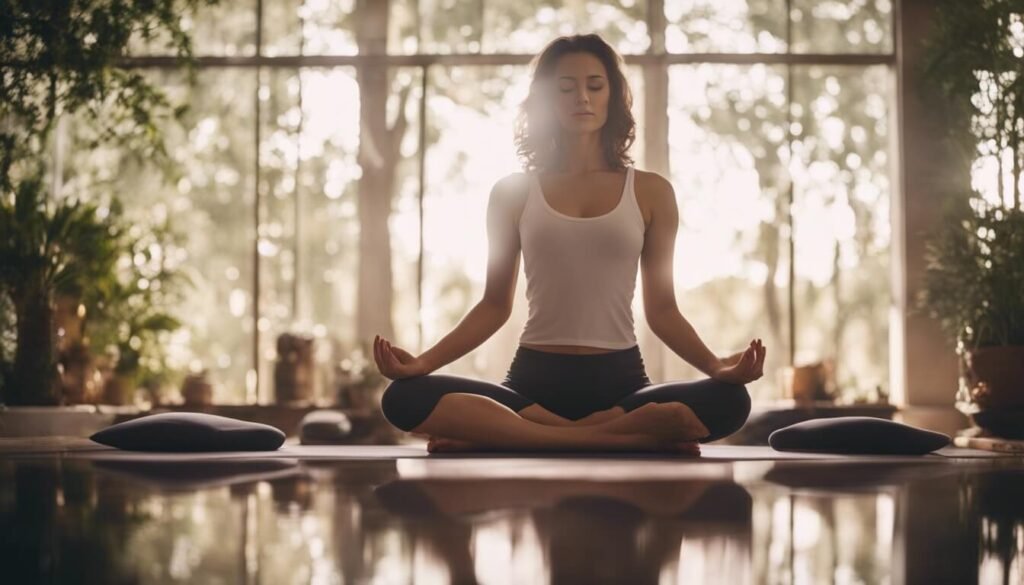
Over-the-counter solutions for Dry Eyes
You can grab artificial tears at any drugstore if your eyes feel like a sandy beach. These over-the-counter eye drops work to moisten your peepers and give you relief. Make sure some of these drops are preservative-free, especially if you’re using them a lot.
No one wants extra chemicals in their eyes, right?.
For those times when your eyes are super dry, gels and ointments might be what you need. They’re thicker than drops and coat your eye with more gooey goodness to soothe that scratchy feeling.
Just know they can blur your vision for a bit—so it’s best to use them before bedtime. Give ’em a try, and let those dry eyes take a much-needed break!
Selecting Artificial Tears and Eye Drops
Dry eyes can make you feel uncomfortable. Artificial tears and eye drops can help ease that scratchy feeling.
- Look for drops that say “preservative – free.” These are good if you need to use them a lot.
- Find products labeled for “moderate to severe” dry eye if your symptoms are strong.
- Some drops come in thick gels or ointments. They work well at night to keep your eyes moist while you sleep.
- Drops made just for allergies might help if itching and redness are bothering you.
- Go for ones that help increase tear production if your eyes don’t make enough tears.
- Make sure the bottle tip won’t touch your eye. This helps prevent infections.
- Check how long the drops last before they expire. Fresh products work best for your eyes.
- Ask an eye doctor about which kind would be best for you. They understand what’s causing your dry eyes.
- Nonprescription products are easy to get, but see an eye doctor if problems don’t get better.
Ointments and Gels for Severe Dry Eye
Severe dry eye can be really tough. Luckily, ointments and gels can help make your eyes feel better.
- Go for over-the-counter options first. Many stores sell artificial tears that can soothe your eyes.
- If those aren’t enough, try thicker gels or ointments. They stay in your eyes longer and keep them wet.
- Use them at bedtime. Ointments are great then because they won’t blur your vision while you’re awake.
- Keep it clean. Always wash your hands before putting anything in your eyes.
- Talk to your doctor if you’re still having trouble. They might suggest prescription eye drops.
- Be careful with contact lenses. Some products aren’t okay to use with them, so check the label.
- Read instructions closely. Follow how often the package says to use these products for the best results.
- Watch out for preservatives. If you’re using drops a lot, preservative-free types may be better for you.

Professional Treatments for Dry Eye Syndrome
Sometimes, home tricks just don’t cut it for dry eye. That’s when you might head to the eye doctor for more help. They can run tests to figure out what’s behind your dry eyes. Maybe it’s blocked oil glands or something else.
The doc could suggest special drops that fight inflammation or they might say you need tiny plugs in your tear ducts.
Other times, a treatment called LipiFlow helps; it warms and pushes on your eyelids to unclog glands right there in the office. Or maybe you go big with surgery to fix the problem once and for all.
Whatever route you take, working with pros can kick dry eye to the curb so you get back to seeing clearly without that scratchy feeling bugging you day and night.
Diagnostic Tests for Dry Eyes
Dry eye disease can be annoying. Eye doctors use tests to find out why your eyes are dry.
- A basic exam checks how your eyes look and work. The doctor looks at your eyes and uses lights to see inside.
- The Schirmer’s test measures if you make enough tears. You get a special paper under your eyelid, and the doctor sees how wet it gets.
- Special dyes in eye drops can show problems on the eye’s surface. The doctor puts in drops, and then looks at your eye with a light.
- Tear breakup time is a test that shows how long before tears start to break up. The eye doctor puts dye in your eyes and times it.
- Checking oil glands may be done with warm compresses. Blocked glands can cause dry eyes, so this helps find relief.
- Imaging tests take pictures of your eye structures. These photos help doctors understand more about your dry eyes.
- Sometimes, doctors do blood tests too. This helps them learn if another health problem is making their eyes dry.
Medical Interventions for Dry Eye Relief
Doctors have different ways to help with dry eye. They can try many things to make your eyes feel better.
- Prescribed Eye Drops: Your doctor might give you special drops that are stronger than store ones. They can reduce swelling and help your body make more tears.
- Punctal Plugs: These tiny plugs go into the corners of your eyes to keep tears around longer.
- Tear Duct Surgery: Sometimes, doctors close the tear ducts in a small surgery. This helps by keeping more tears in your eyes.
- Special Contact Lenses: Some contacts can protect the surface of your eye and trap moisture.
- Medicines: Pills or other forms of medicine can help your eyelids make oil. This oil helps keep tears from drying up too fast.
- Light Therapy and Eyelid Massage: A kind of light treatment with massage can unblock oil glands on your eyelids.
- Omega-3 Supplements: Eating foods rich in omega-3 or taking these as pills might help ease dry eye symptoms. Fish like salmon have lots of omega-3s.
- Drinking Water: Stay hydrated! More water in your body means more moisture for your eyes.
- Avoiding Bad Air: Keep away from smoke and wind that can dry out your eyes fast.

Alternative Approaches to Dry Eye Relief
You might want to try some natural supplements for your dry eyes. Omega-3s are your friends here – think fish oil or flaxseed oil. They can help with eye moisture. Also, chowing down on water-rich fruits and veggies can keep you hydrated, which is great for your eyes.
Ever heard of acupuncture? It’s this method where they gently put tiny needles in parts of your body. Some folks say it helps with their dry eye symptoms. There are also special massages and exercises for the eyes that could give you some relief.
Just remember, keeping those peepers happy means looking at all the ways to help them out!
Natural Supplements and Dietary Changes
Dry eyes can bug you a lot. Good food and the right vitamins might just be the answer.
- Fish with lots of omega-3s, like salmon and sardines, can help your eyes stay wet.
- Keep a water bottle close by; drinking more helps keep your eyes from drying out.
- Flaxseeds and chia seeds have good oils that may help your tears stick around longer.
- Vitamins like A, C, and E support eye health; orange veggies and fruits are great sources.
- Leafy greens like spinach are full of stuff that’s super for your eyes.
- Almonds and sunflower seeds give you vitamin E which is like a shield for your eyes against bad stuff in the air.
- Put black currants on your snack list—they’ve got GLA, an oil that helps calm eye irritation.
Acupuncture and Other Holistic Methods
Acupuncture and other holistic methods can offer a new way to relieve your dry eye symptoms. These techniques focus on your whole body’s health to help your eyes feel better.
- Acupuncture uses tiny needles to target specific points on the body. This can boost energy flow and nerve signals, helping to manage your dry eye.
- Eye massages can improve blood flow. Gently rubbing around your eyes helps move oils, which can lubricate your eyes.
- Take breaks during long tasks. Simply close your eyes for a bit or look away from screens to help prevent dry eyes.
- You might try blinking exercises. These strengthen eye muscles and spread tears evenly across your eyes.
- Yoga improves overall relaxation and might help reduce stress that contributes to dry eye.
- Consider adding omega-3 fats to your diet. Eating oily fish like salmon keeps your tear film healthy.
Conclusion
So, you’ve got the scoop on beating dry eyes now! Remember, your peepers love it when you treat them right with warm clothes and plenty of blinks. Keep those tears flowing with lots of water and maybe some fishy meals.
And hey, if your eyes are still giving you trouble, a quick chat with an eye doc could really help out. Here’s to happy, hydrated eyeballs!

Frequently Asked Questions (FAQ)
1. What is dry eye?
Dry eye refers to a condition in which the eyes do not produce enough tears or the tears evaporate too quickly, leading to discomfort, irritation, and potential damage to the surface of the eye.
2. What are the symptoms of dry eye?
The symptoms of dry eye may include stinging or burning sensations, redness, sensitivity to light, a sensation of having something in the eye, blurred vision, and difficulty wearing contact lenses.
3. How is dry eye diagnosed?
A diagnosis of dry eye disease is typically based on a comprehensive eye examination, including an evaluation of the quantity and quality of tears, an assessment of the health of the surface of the eye, and a review of the patient’s symptoms.
4. What are the causes of dry eye?
Dry eye can occur when the tear film is unstable or when the production of tears is insufficient. Environmental factors, aging, hormonal changes, certain medications, and medical conditions such as rheumatoid arthritis may contribute to this condition.
5. How can I manage dry eye symptoms at home?
Home remedies for dry eye may include using a warm compress, avoiding environmental factors that can irritate your eyes, and using over-the-counter eye drops or artificial tears to lubricate the eyes and find relief.
6. What are the treatment options for severe dry eye?
In cases of severe dry eye, your eye care professional may recommend prescription eye drops, procedures to close and block the tear ducts, or specialized treatments to help with dry eye relief and management.
7. How can I prevent dry eye?
To prevent dry eye, it’s important to protect your eyes from environmental factors, maintain good eye health, stay hydrated, and consider using a humidifier in dry indoor environments to keep your eyes lubricated and comfortable.



